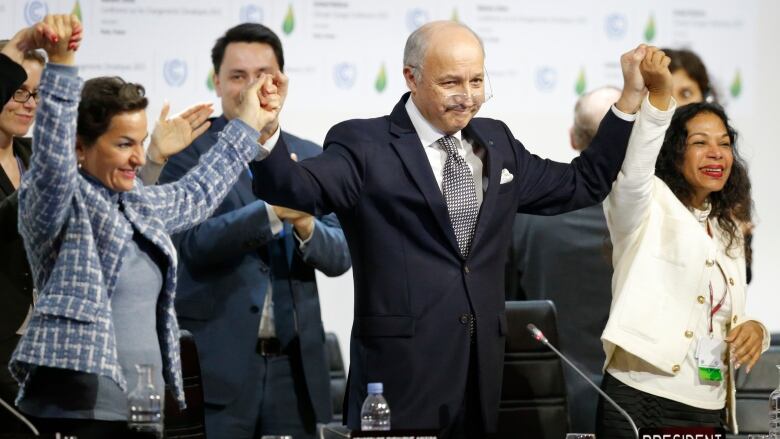Paris climate pact 'changes everything,' say Ottawa advocates
Saturday's historic — if 'limited' — agreement is best we could have hoped for, environmental advocates say

Environmental advocates in Ottawa say this weekend's Paris climate change agreement is a game changer, but "stronger actions" and "stronger commitments" are needed.
On Saturday, nearly 200 countries signed an agreement to collectively cut greenhouse gas emissions. But while the historic event drew loud applause in the conference hall, some are concerned about a lack of sanctions for countries which don't comply.
"This changes everything," Mitchell Beer, an observer for the Sierra Club of Canada, told CBC's Ottawa Morning on Monday.
"Yes, it's a limited agreement," he said. "It was the most anyone could agree on with 195 countries and multiple negotiating blocks at the table."
'Stronger action' will come
Dale Marshall, the national program manager for advocacy organization Environmental Defence, said there need to be both long-term and short-term goals to deal with climate change.
"It's the first time that any global agreement on climate change has actually recognized the science and set long-term goals to actually keep temperatures well below 2 degrees," he told Ottawa Morning.
"We do need stronger action and we do need stronger commitments, but we expect that to come."
The sweeping changes needed to meet climate change targets will affect "the cities, the unions, the businesses," said Beer.
"What we're looking at is a transformation of the Canadian economy," Marshall added. "It's not going to happen overnight. It's going to happen over the course of 20, 30 years."
'We're very hopeful'
Making sure special interests don't derail the talks has been "a bit more difficult than it sounds," Beckwith said, adding that researchers are "very hopeful" with the work the new Canadian government is doing.
"The world is very pleasantly surprised this year with Canada's role," he said.
All three conference observers agreed the plan — though less ambitious than some had hoped — is still an important step forward.
The "lowest common denominator" compromise among the many countries, as Marshall described it, will be re-evaluated in three years to ensure governments are on track.